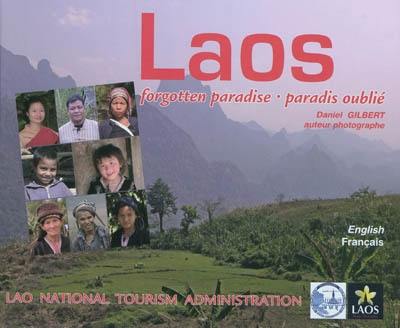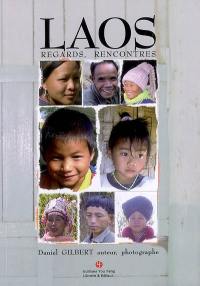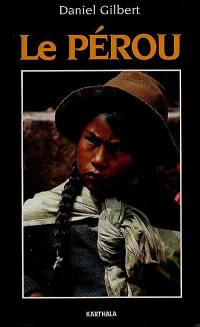
Fiche technique
Format : Relié
Nb de pages : 351 pages
Poids : 1775 g
Dimensions : 29cm X 24cm
ISBN : 978-2-84279-482-8
EAN : 9782842794828
Laos
forgotten paradise
Quatrième de couverture
Laos paradis oublié
Le paradis est un rêve que les civilisations et mythologies religieuses ont inventé, une destination imaginaire idéale. Le Laos avec sa nature exceptionnelle, ses sites magnifiques et ses villages ethniques aux traditions ancestrales en offre une rare image et séduit déjà de nombreux touristes en quête d'évasion. Loin des nostalgies partisanes qui divisent les communautés et déforment l'histoire, ce livre propose un regard humaniste et actuel, et lève le voile du rêve pour des réalités et des conditions de vie encore très difficiles de ces nombreux villageois que le progrès a oubliés. Ils s'intègrent à la nature environnante qui leur donne tout et aspirent à l'éducation de leurs enfants, aux progrès de la santé, de l'économie dans une mutation difficile. Le Laos veut apporter ce progrès pour tous, en préservant ses vraies richesses, son environnement et son patrimoine culturel, les savoir-faire ancestraux de ses ethnies. Paradoxe difficile du rêve et de la réalité, des traditions et du progrès, des croyances et du savoir, le paradis pourrait être ce développement humain durable qui préserve ce respect de la nature, des forêts et rivières. Ce livre est l'essai de l'auteur qui a voulu traduire l'âme d'un peuple lao attachant et l'envoûtement de ce pays étonnant. Daniel Gilbert
Laos forgotten paradise
Paradise is a dream, invented by civilizations and religious mythologies, it is an idealized imaginary destination. Laos, with its exceptional natural beauty, magnificent sites and ethnic villages with ancient traditions, offers a rare image of paradise which has already seduced many tourists seeking an escape. Leaving behind the partisan issues, which divide communities and distort history, this book focuses on a humanist and current view, lifting the veil of romanticised paradise, and exposing the realities and conditions of a life that still remains difficult for many of the villagers whom progress has forgotten. They still live in harmony with the natural environment, which provides for all their needs. And yet, they also seek an education for their children, better health care and a better economic situation, undergoing a difficult transformation. Laos wants to provide progress for everyone, while still preserving its true riches, its environment, its cultural heritage, its traditions, its ancestral way of life and know-how of its ethnic groups. There remains today a difficult paradox between dream and reality, between tradition and progress, and between beliefs and knowledge. Perhaps sustainable growth, developing in harmony with, and maintaining a respect for, nature, forests and rivers, could come to represent the true paradise. This book is an attempt by the author who wishes to interpret the soul of the engaging Lao people and the magical spell of this astonishing country. Daniel Gilbert








